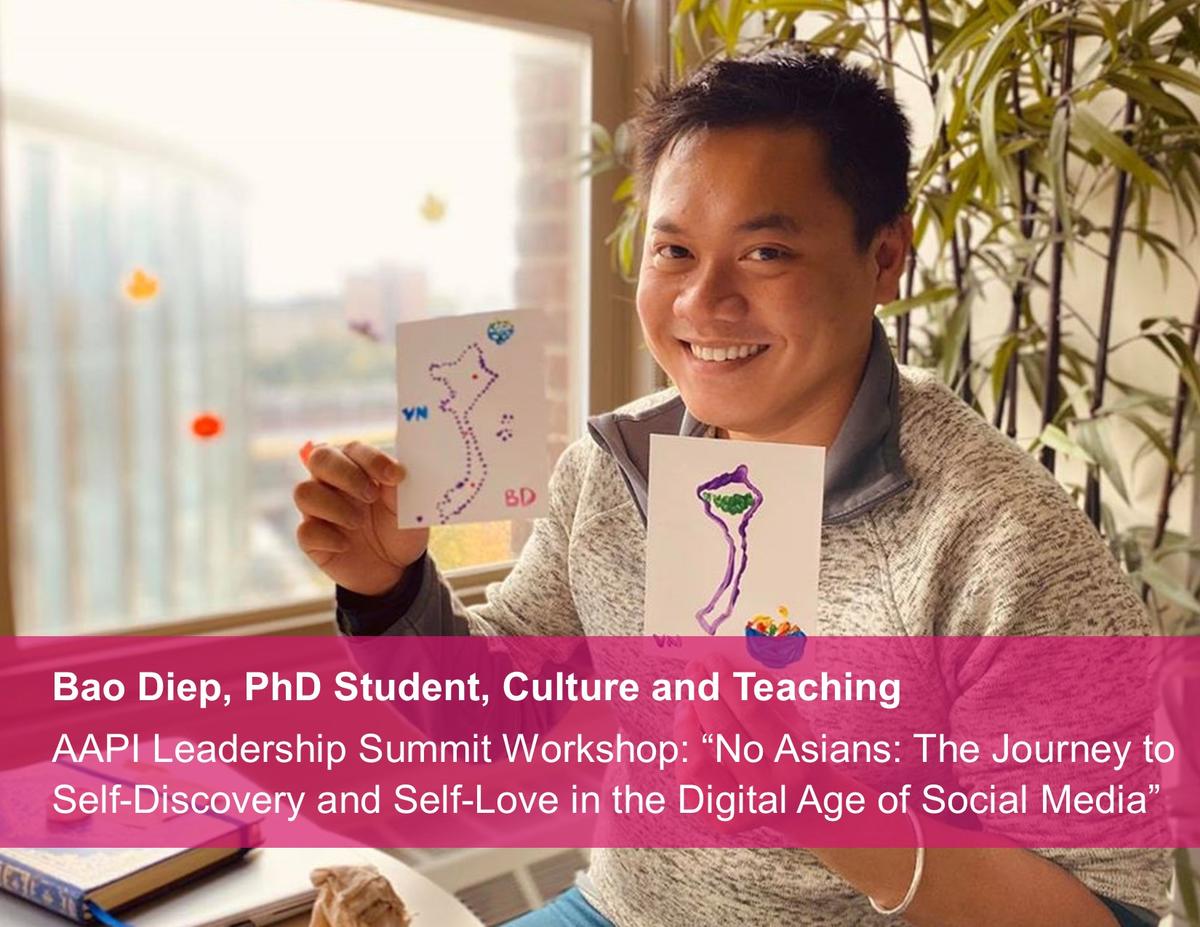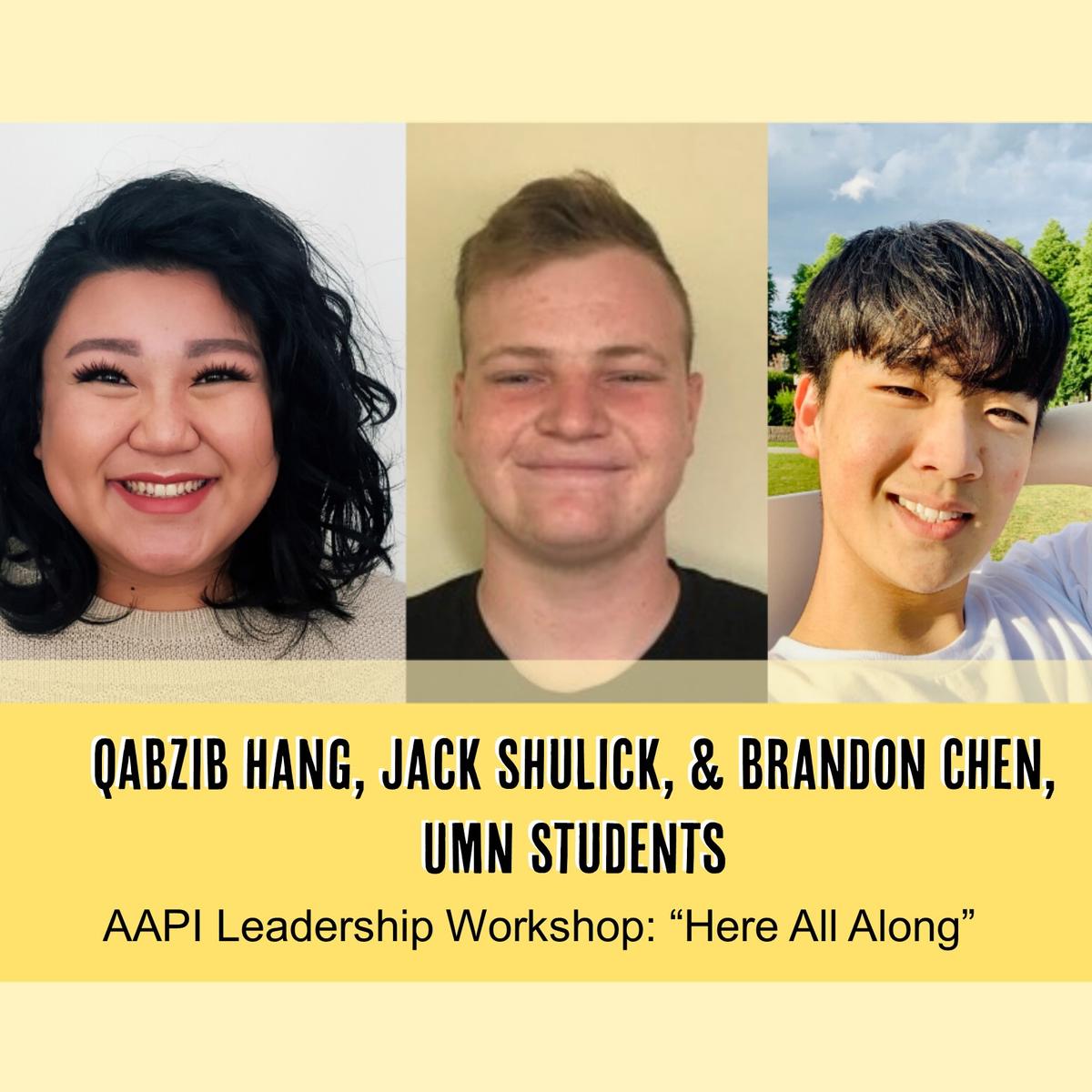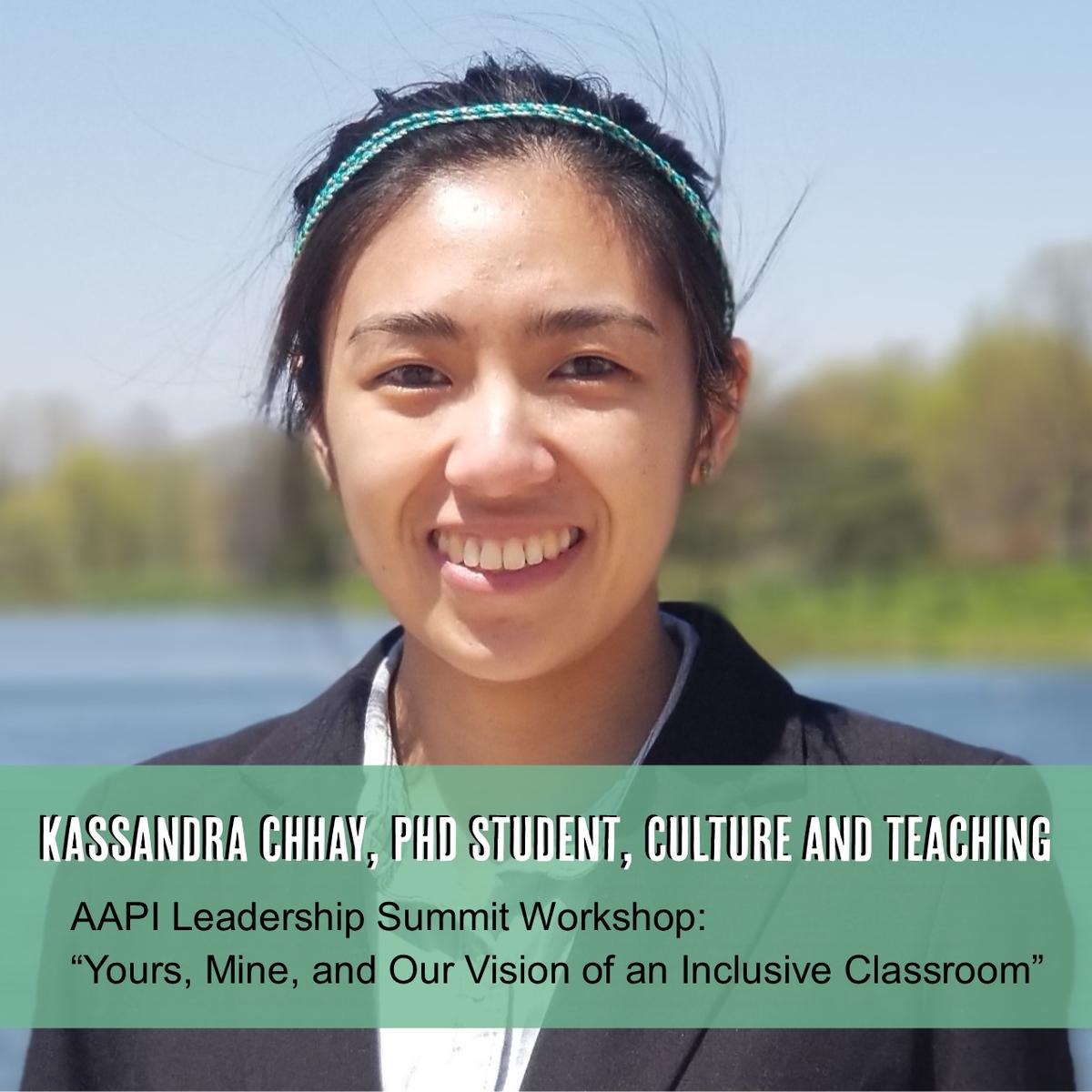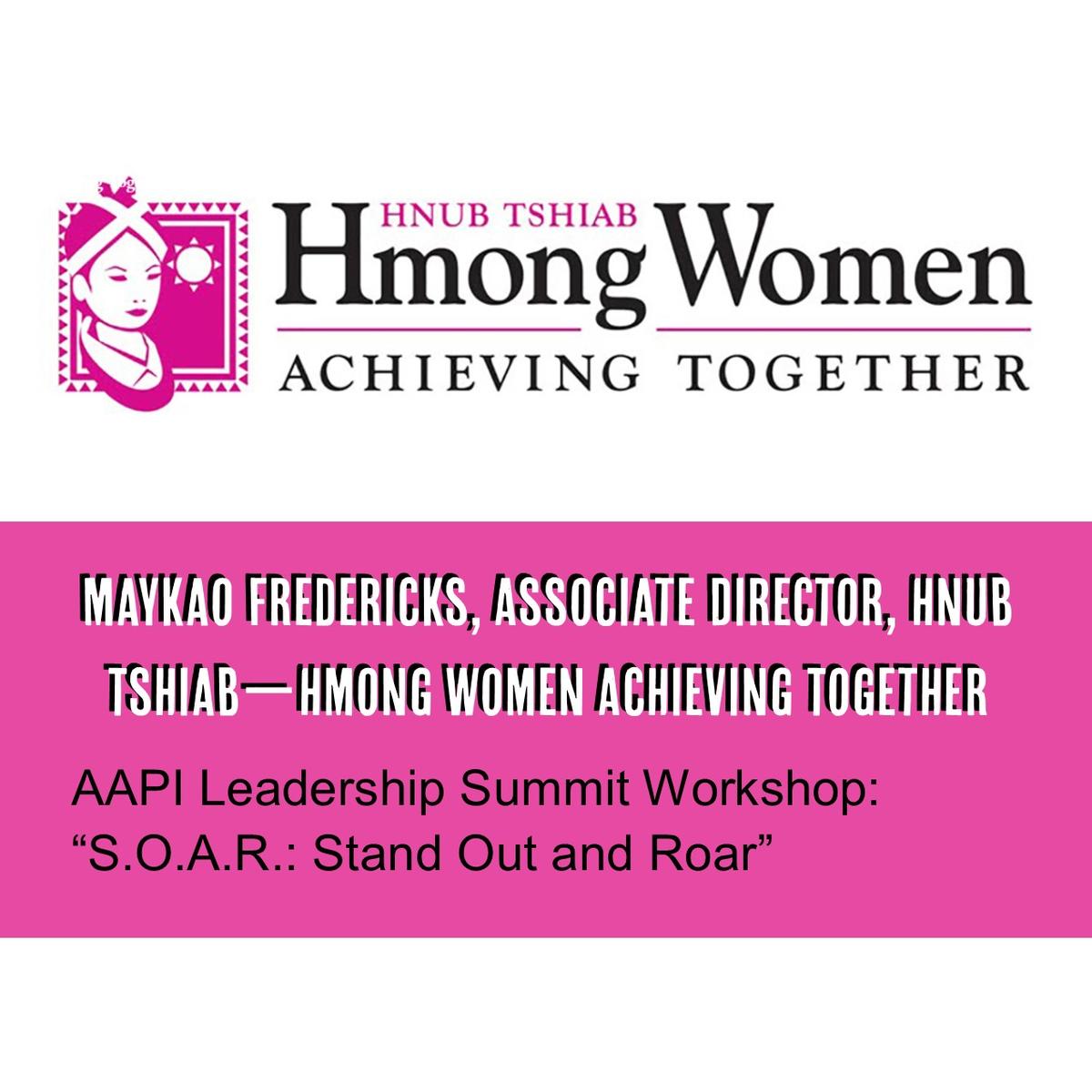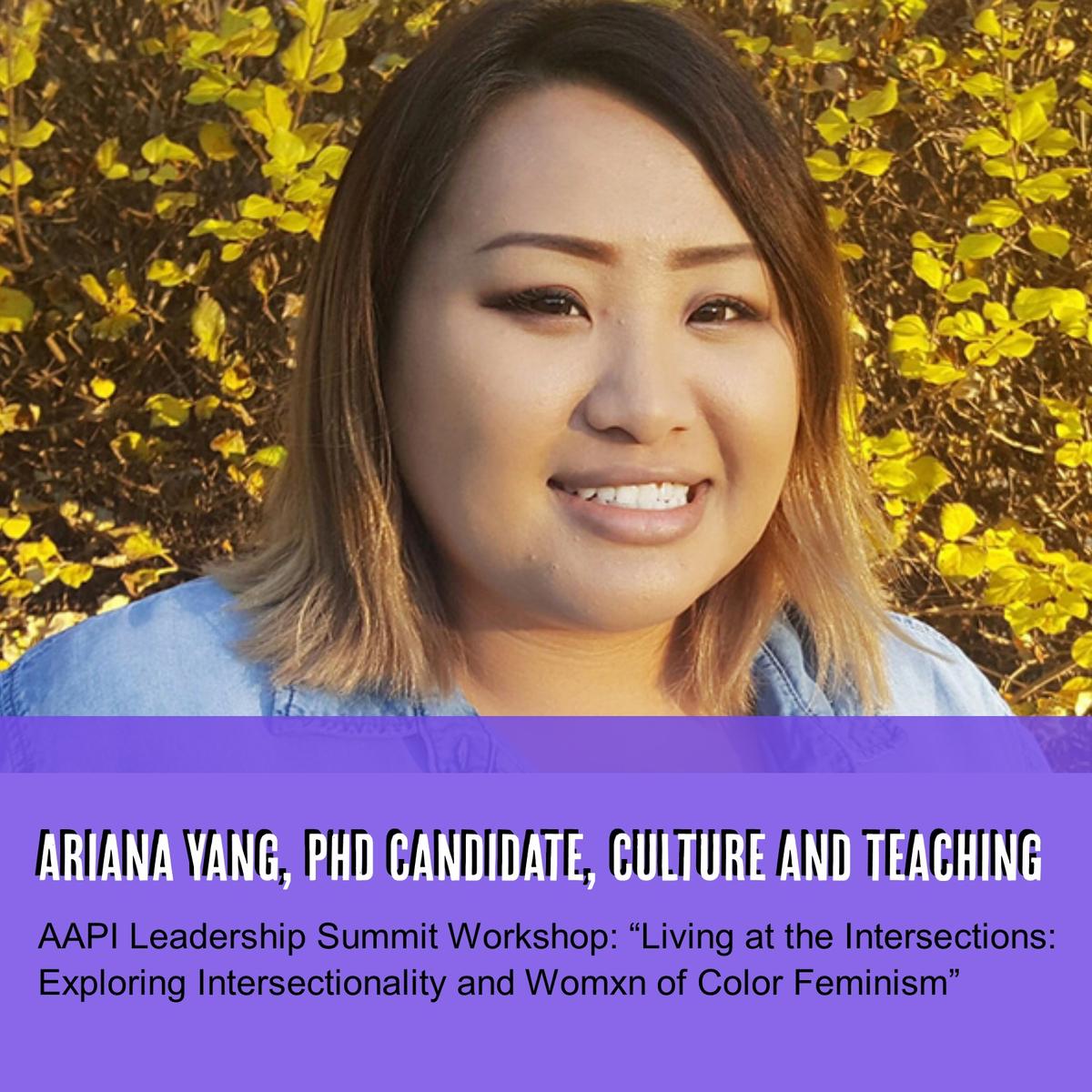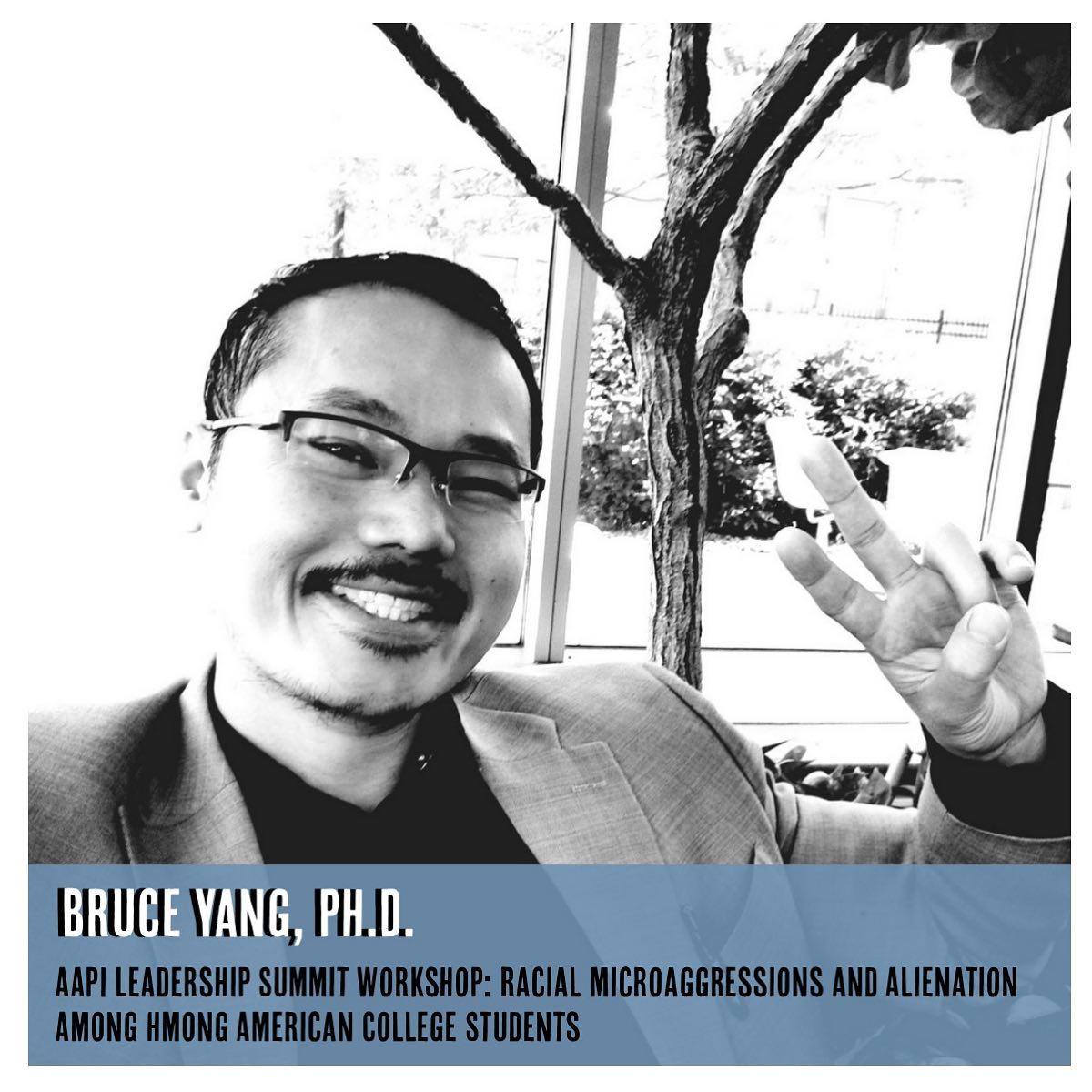"No Asians: The Journey to Self-Discovery and Self-Love in the Digital Age of Social Media"
Bao Diep, PhD Student, Culture and Teaching
This workshop (Re)- introduces participants to explore and examine how racial stereotyping and stigmatization can impact one’s self-esteem and psychological distress. The audients will have the opportunity to recognize the role of racism and microaggression in the gay community ‘s dating culture. In recent years, online dating has also increasingly become popular in the LGBTQA communities. However, convenience of online dating also has its flaw: the rising and maintaining hegemonic masculinities; and how that ideology push Asian American gay men to become victims of institutional and cultural racism within the gay community (Shek, 2006). The presentation will take the audients through the different stage of Racial Identity Development (John and Joy Hoffman) through the lens of an Asian American gay man. The audiences will be able to learn about dating apps, such as Grindr and Blued, and how these apps have changed the way our society response to racism in other forms of oppression.
“Here All Along”
Qabzib Hang, Brandon Chen, Jacob Shulick, UMN Students
We hear about all of our different intersectionalities being grouped but have you ever thought about grouping AAPI and queer? During our workshop, we will be building a small community by starting the conversation of what it means or what it could mean to identify as Asian and as queer. We want to bring our community together to talk about some things that would not normally be talked about in today's society. We welcome all people to join with open minds and to listen to understand each other. Our activities will consist of answering three main prompts where we will reflect and discuss what it means to be Asian and LGBTQ. Near the end of our workshop, we will be showing a video that ties all we’ve talked about together. We also hope to maintain a community where we can ask each other for help and resources.
“Yours, Mine, and Our Vision of an Inclusive Classroom”
Kassandra Chhay, PhD Student, Culture and Teaching
Given the continuous increase of AAPI immigrants and refugees in the U.S., it is imperative to address the needs of AAPI students in the classroom in order to create an inclusive learning environment. This workshop focuses on the classroom environment that AAPI encountered growing up and how it has shaped and continues to shape their cultural and national identities. The workshop discussion centers on student-teacher interactions and the content of the curriculum. How does interactions in the classroom and the curriculum impact students’ sense of belonging and mattering? What are the educational needs of APPI students? What opportunities in the classroom is relevant to APPI students’ needs? Participants will have the opportunity to reflect on their K-12 classroom experiences in relation to their identities, share their experiences with other participants if comfortable to do so, and discuss what an inclusive classroom would look like to meet the diverse backgrounds of AAPI students. The outcome from this workshop will provide AAPI leaders insight about designing a culturally inclusive classroom and relevant curriculum for future AAPI students based on the experiences and voices of former K-12 AAPI students.
“S.O.A.R.: Stand Out and Roar”
MayKao Fredericks, Associate Director, Hnub Tshiab - Hmong Women Achieving Together
Have you had a desire or a dream but were told that you wouldn’t be able to work towards that dream because it was outside the realm of possibility for you? This workshop is an introduction to Hmong Women Achieving Together SOAR programing. Through self-reflection, mentoring, peer to peer support and discussion, one can eventually shed light on the subconscious narratives and beliefs that shape our everyday lived experiences, allowing us to Stand Out and Roar (SOAR) for what we believe our life narrative to be. We call it Stand Out and Roar because we want to see readers exercise courage to use their voice, courage to follow their dreams, and courage to live their best lives. During the workshop, participants will be introduced to the two accompanying books 1.) Staring Down the Tiger: Stories of Hmong American Women and 2) Stand Out And Roar. After a brief introduction of the change framework, participants will engage in a SOAR self-reflection activity.
“Living at the Intersections: Exploring Intersectionality, Womxn of Color Feminism, and Radical Futures”
Ariana Yang, Ph.D. Candidate in Culture and Teaching
In recent years, "intersectionality" has become a sort of buzzword, but what does it really encompass? Why is intersectionality important and how does one take on an intersectional lens? In this workshop, we will explore intersectionality as a way of understanding and moving through the world. We will draw on the foundational work by Black feminist thought, and consider how intersectionality can and has served as a tool for Asian American Pacific Islanders (AAPIs) to position ourselves politically, historically, and socially. In particular, we will take up the call of intersectionality, and unpack how systems of oppression and privilege constitute and shape one another. We will engage in both reflective and practice-oriented activities to address these questions and collectively imagine new, radical, and just futures.
“Racial Microaggressions and Alienation Among Hmong American College Students”
Bruce Yang, Ph.D. Assistant Director, Office of Intercultural and International Life - Carleton College
What are racial microaggressions and alienation? How are Hmong and other API students affected by these challenges? How have students coped with them? These are questions that this workshop will help address by examining the current body of research on this subject. Students will have to opportunity to (a) learn more about the different types of racial microaggressions as measured by the Racial and Ethnic Microaggressions Scale (REMS; Nadal, 2011) and dimensions of alienation as measured by the University Alienation Scale (UAS; Burbach, 1972); (b) share and discuss personal experiences; and (c) share and discuss ways in which these problems can be appropriately addressed.
